Tocopilla, a Chilean city on the coast of the Pacific, needed a sustainable source of water.
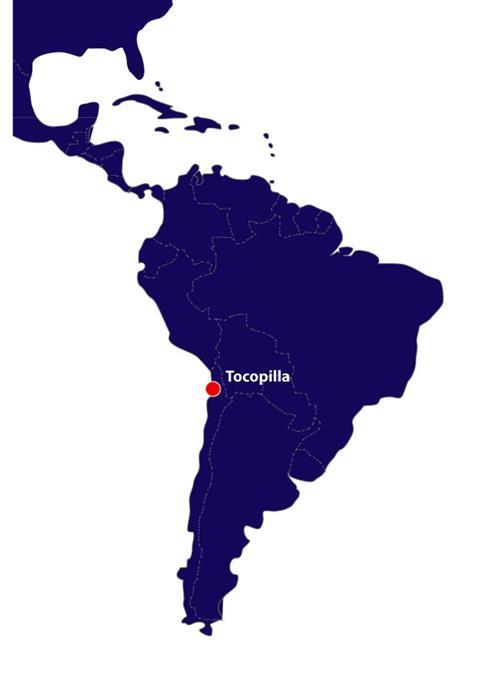
Its water was supplied from surface sources from its surrounding mountains.The ecosystems of these mountains are highly fragile and are easily disturbed by high rainfall, steep slopes and erodible soils – the latter being a major pollutant of surface waters. To address the growing need for a sustainable drinking water supply for Tocopilla, a desalination plant was built to turn seawater into drinking water using Nitto Hydranautics’ reverse osmosis membrane technology, making this community the first Chilean city to adopt a more sustainable membrane approach to water consumption.
Nitto is a 100-year-old polymer company that specialises in using polymer science to create new technologies that solve market needs and provide value to society. The company’s first membrane systems were developed nearly 50 years ago for use in the food industry, and today have developed into capillary membranes that are designed to remove various solutes, such as salt – a process known as desalination. Nitto’s group company Hydranautics works with customers to develop innovative systems to solve filtration challenges. For Tocopilla, that’s turning saltwater, a challenging liquid, into safe, clean drinking water.
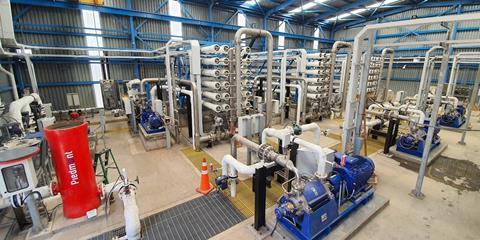
Desalination removes dissolved salts and other minerals from water, but it can be a challenge, as salt is very corrosive and can damage the devices designed to remove it. Reverse osmosis systems use external pressure to send water through a series of membranes to reduce the salinity level. Seawater has a high salinity level, which requires a higher level of pressure for proper permeability and salt rejection. This high pressure typically requires more energy and is more taxing on the membrane.
Renato Ramos, the Hydranautics sales director in Latin America, reccomended the SWC6-LD membrane for the plant’s needs. ‘The SWC6-LD membrane has a unique combination of high flow, lower energy requirements and low salt passage to support Tocopilla’s requirements.’
The membrane was the optimal choice, and Tocopilla soon began enjoying the results.
In addition to reducing the impact Tocopilla has on the freshwater system of the surrounding mountains, the systems built for the Tocopilla desalination plant provide a climate-independent source of drinking water to meet the needs of the community today and in the future. The daily desalinated water production reaches roughly 75 litres per second, which equates to 6,480,000 litres of drinking water per day. For the city of Tocopilla, with a population of roughly 25,000, this means the desalination plant will supply 100% of the community’s needs.
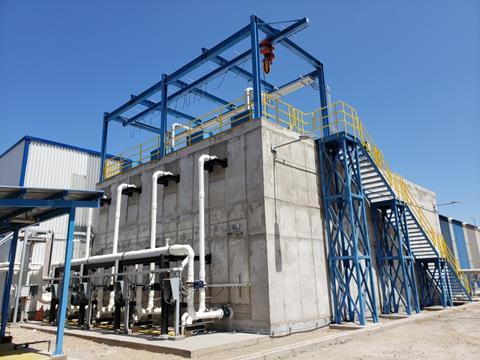
The sustainable viability of the desalination plant as a water source was assessed prior to plant construction. An environmental study was performed as part of the engineering process to determine the environmental impact of seawater purification using Hydranautics membrane technology.
The plant’s design is dedicated to environmental protection and required diligent attention to mitigating the environmental impact of the desalination plant, particularly by the brine discharged into the sea. Modeling studies were conducted to evaluate the behavior of the marine currents to determine the best way to dilute the saltwater discharge as quickly as possible. The plant was able to create a method that preserved the same water quality to protect marine life.
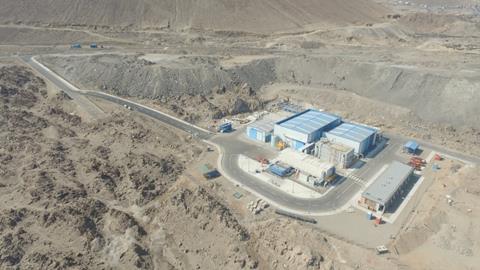
In addition to the sustainable benefit of the desalination plant, the work associated with developing the plant contributed more than $4.6 million in local contracts for services associated with construction. Additionally, Good Neighbor Work Table, an association to create a permanent dialogue with the community, was established. The association contributed more than $210,000 to the community in the form of investment funds, trade development programmes and environmental education activities that focus on the production of desalinated water.
Nitto’s core technologies serve as a foundation for developing unique polymer-based products for a variety of industries and applications. Using its expertise in polymer function control, Nitto can create distinctive materials by controlling the chemical structure and position of monomers. This process allows for the creation of new functions for new technologies. Whether that is controlling select wavelengths of light with its polarisation technology or providing enhanced safety solutions for gas detection with its permeable adhesive technology. As a polymer specialist, Nitto continues to build upon more than 100 years of experience by analyzing and evaluating polymers to create value for its customers through innovative ideas. Nitto’s dedication in helping Tocopilla create a sustainable water supply is one example of its passion for finding solutions. Nitto’s Hydranautics will continue to innovate and develop more sustainable water solutions that create wonders for society.





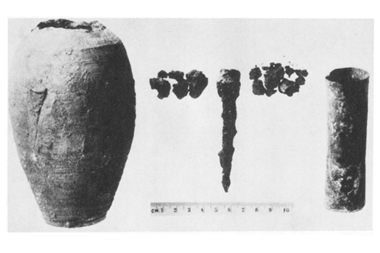

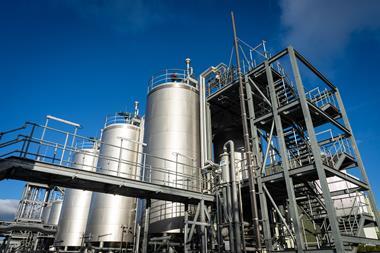
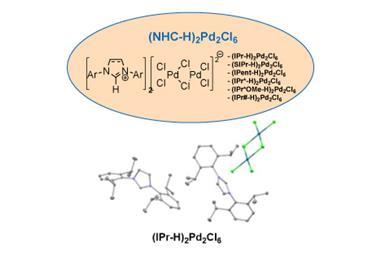
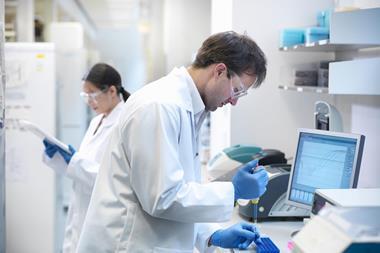
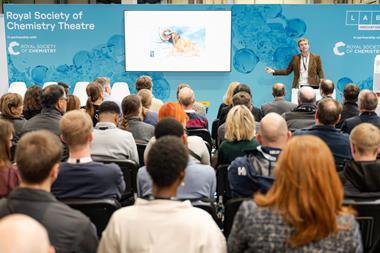

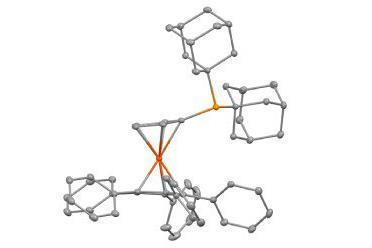
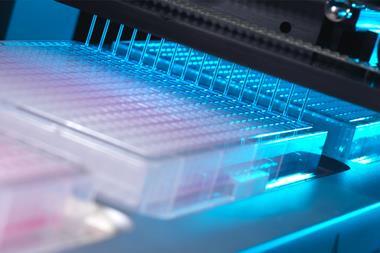
No comments yet